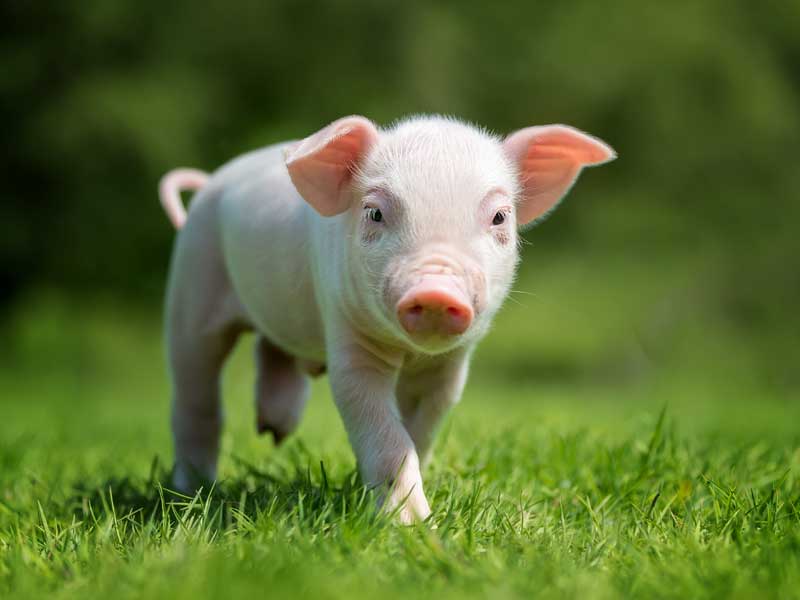

What is gluconic acid?
Gluconic acid is an organic compound - a polymer found naturally in numerous plants and seeds. Roquette’s gluconic acid is produced using a specially developed process.
The product is available in two forms:
- Liquid (Gluconic Acid).
- Powder, with sodium gluconate (GDS) following neutralization and crystallization.

Why use gluconic acid?
Gluconic acid acts by stimulating endogenous butyrate production, and by short chain fatty acid production. Different trials have demonstrated some growth performance (weight gain) and intestinal villous height improvement.
In harness with two universities - Universities of Barcelona (Spain) and Gand (Belgium) - Roquette is carrying out studies to improve the digestive wellness of piglets.
The main use of gluconic acid nowadays is for piglet nutrition. However, it is also in demand in the poultry and aquafeed markets. Roquette is studying this demand to identify the best solutions for customers.
Main specificities
Gluconic acid and its derivatives (sodium gluconate, glucono-delta-lactone GDL) are sustainable alternatives to petroleum-based products:
- Plant-based
- No known toxicity (LC50 for sodium gluconate is 20,000 mg/l)
- Very high biodegradability (metabolized by micro-organisms normally present in water)
- Excellent aquatic flora and fauna tolerance.
Gluconic acids also make for very safe products:
- Food status (included in Annex 1 of European Directive 95/2)
- GDL is a neutral product; gluconic acid is a weak organic acid
- No or very low risk of skin or eye irritation
- Low corrosivity and acts as a corrosion inhibitor in alkaline media
- Gluconic acid is a non-corrosive, non-volatile, nontoxic, mild organic acid
- Registered in the EU Feed Catalog (June 2017)













